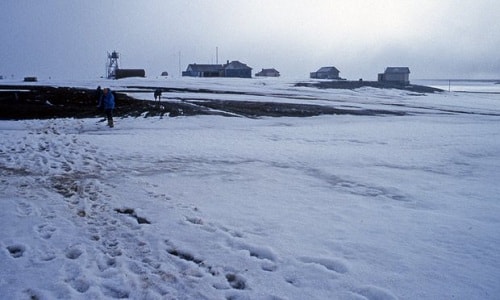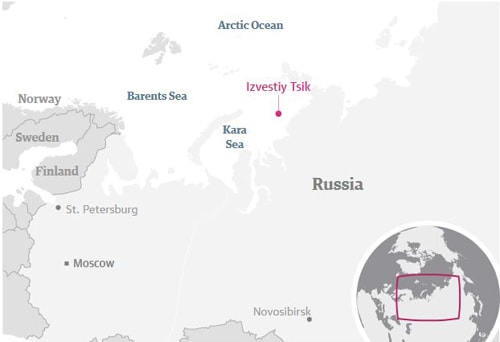Bears surround weather research station in the Arctic
A pack of polar bears surrounded the weather station on Troynoy Island and acted unusually aggressively, forcing the station to stop operating.
 |
| The meteorological research station on Troynoy Island had to stop working due to a bear siege. Photo: Peter Prokosch. |
The meteorological station on Troynoy Island, in the southern Kara Sea, about 160 km off Russia's Siberian coast, had to stop working due to being surrounded by polar bears, Tass reported.
"It would be dangerous to go outside due to the lack of means to scare away wild animals. Therefore, we had to stop some meteorological observations," explained Vadim Plotnikov, head of the meteorological station.
He said there were about 10 adult bears, including four females and several cubs, surrounding the station. "On August 31, the bears killed one of our dogs and have not left the station since then," Plotnikov said.
These are some of the expected difficulties of working in the Arctic. "This happened on Troynoy Island, where bears live in the area where people work. We hope that by the end of October or the beginning of November, when the waters near the island freeze, the bears will leave to find food," said Vassiliy Shevchenko, head of the Sevgidromet meteorological monitoring system, which owns the station.
 |
| Tronoy Island in the Izvestiy Tsik archipelago in the Kara Sea, near the Arctic Circle. Graphic: Guardian |
However, Yelena Novikova, a spokeswoman for Sevgidromet, said the bears' unusual aggressive behavior was due to climate change causing the ice on Troynoy Island to melt. "Every year the bears usually go to other islands, but not this year. The ice is melting so fast that the bears cannot swim to other islands. There is no food on Troynoy Island, so they come to the meteorological station," Novikova said.
A supply ship for the weather station will arrive on the island in a month, carrying flare guns that it hopes will help scare off the bears and rescue the scientists.
According to VNE
| RELATED NEWS |
|---|

